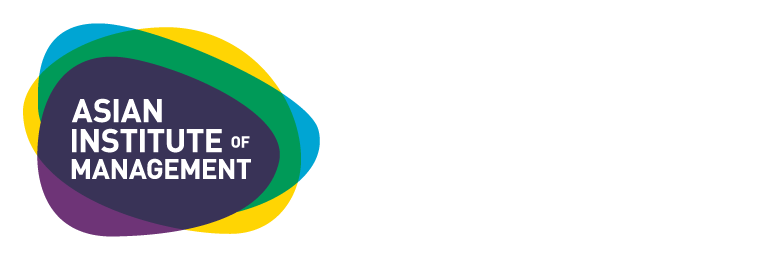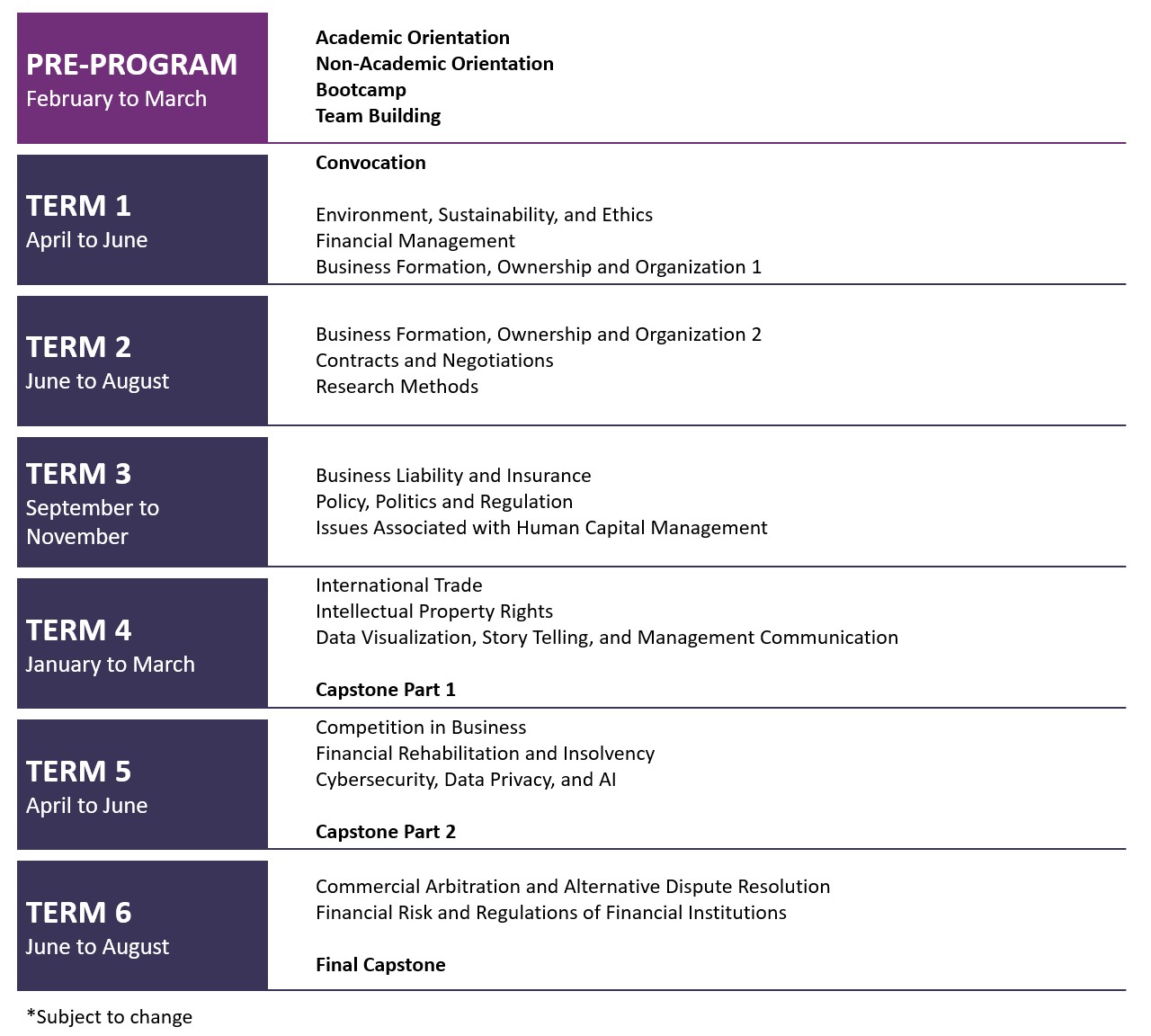

MASTER IN INTERNATIONAL BUSINESS LAW PROGRAM SCHEDULE*
The program recognizes the rapidly changing nature of the international business environment as it equips graduates with the skills and knowledge to adapt to these changes effectively. By emphasizing comparative research and problem-solving skills, individuals gain the ability to analyze complex scenarios, propose innovative solutions, and respond to evolving legal and business challenges. This adaptability is highly sought after by employers in various industries, making the program attractive to individuals seeking diverse career opportunities beyond traditional legal roles. This practical approach ensures that individuals without prior legal experience can excel in international business roles and make informed decisions.
With diverse teaching staff and a curriculum that emphasizes different legal traditions and jurisdictions, the program fosters a global perspective and cultural awareness among its students. This exposure to various legal systems and business practices prepares individuals to navigate the complexities of the international business arena, engage effectively with diverse stakeholders, and adapt to different cultural contexts. Through interactive case studies, simulations, and real-world projects, students develop critical problem-solving abilities, negotiation skills, and business acumen.
The program offers extensive networking opportunities with professionals from various industries, including law, business, and academia. Participants have the chance to connect with experts, guest speakers, and alumni who have excelled in international business roles. These connections not only enhance career prospects but also provide valuable insights and mentorship to individuals who may not have initially considered a legal career. Students have access to career counseling and skill-building sessions to enhance their overall competencies. This holistic approach ensures that individuals not only gain specialized legal knowledge but also develop the soft skills necessary for success in international business environments.

Access to Pre-program activities will only be available to students who have settled the registration fee of USD 1,000, which is deductible from the total program fee, upon acceptance to the program.
To fill the gap between the students’ previous studies and the years spent away from the academe, students take preparatory courses during bootcamp. The objective of the Bootcamp is to ease students into the pace and demands of the program by refreshing their knowledge of basic management concepts, introducing them to the dynamics of the case method and exposing them to different frameworks and strategies that would help them synthesize and analyze information quickly and effectively.
CAPSTONE PROJECT
The Capstone Project is a 4-unit application-oriented course that consists of identifying a real-world business challenge or issue posed by organizations to teams of Master in International Business Law (MIBL) students who are expected to:
- Identify a real-world business challenge or issue faced by the organization and its cause;
- Assess and evaluate the issue and recommend solutions by utilizing knowledge of existing laws and regulations, and international standards of doing business; and
- Generate a detailed report and implementation plan to address the issue.
Students are required to gather primary data from the field and to look at company issues through a managerial or senior executive perspective. There is a written report component to the Capstone Project that necessitates consummate communication and presentation skills from the student. The written report must be presented and defended before a panel consisting of a faculty chair, an adviser, and an executive proponent.
FAQs
Is the program exclusive for the Lawyers? Is the law background required in this program?
No, in fact this program is for non-lawyers who want to know more about the law as they apply it in their work and business. However, lawyers are also welcome to join the program to further enrich their knowledge and help them through the business courses that the program offers.
Will the students be allowed to switch between face-to-face and online classes throughout the program?
The program offers a hybrid setup, providing students the choice of attending classes either online or in a face-to-face setup. If they select onsite classes, they can coordinate with the program team as necessary.
Will we be treated as law students?
No, this is not a law school, and this is a business course.
What is the learning approach for this program?
We will be doing lectures, case studies, and there will be learning teams so that students can learn to work collaboratively.
What are the expectations for the students during the duration of the program?
We expect the students to have an open mind and participate in the class discussions. The diverse background of your classmates will help in contributing to getting the different perspectives and challenges when discussing the topics in each subject.
What is the difference between LLM and MIBL?
An LLM is a master’s degree for law students with particular focus on the updates on the law profession. MIBL on the other hand is focused on business and its interaction with law. As such, the courses are curated to focus on relevant and important aspects of laws affecting business.
How will the students be evaluated?
Student performance is typically evaluated through a combination of methods, including written case analysis, quizzes, examinations, and simulations. However, the specific assessment methods may vary depending on the teaching faculty, as it falls within their academic freedom to choose how they assess their students.
What type of capstone project can be done for this program?
The capstone project for the MIBL program typically involves teams of students identifying real-world business challenges or issues in business and demonstrating the independent, intelligent, integrative, creative, and ethical application of knowledge and skills gained in the program. It is designed to address practical business problems posed by organizations.
What are the possible challenges of a student in this program?
For non-lawyers, it might be understanding the legal jargon that is commonly used by those in the law profession, but this will be explained to you during the class.
For lawyers, this might be the courses on financial management and other business courses. Also, you will be a in a class setting with classmates in different professions and thus having an open mind and being collaborative is essential to succeed.
What will be the typical week schedule of a student enrolled in MIBL?
A typical weekly schedule for a student enrolled in MIBL often includes classes held every Friday night and all day on Saturdays, with occasional weekday sessions in case the original schedule coincides with holidays or for makeup classes.
Will this program offer any specializations or concentrations?
Not at this point but be rest assured that the courses are curated in a way that they focus on laws that affect the interest of a business.



